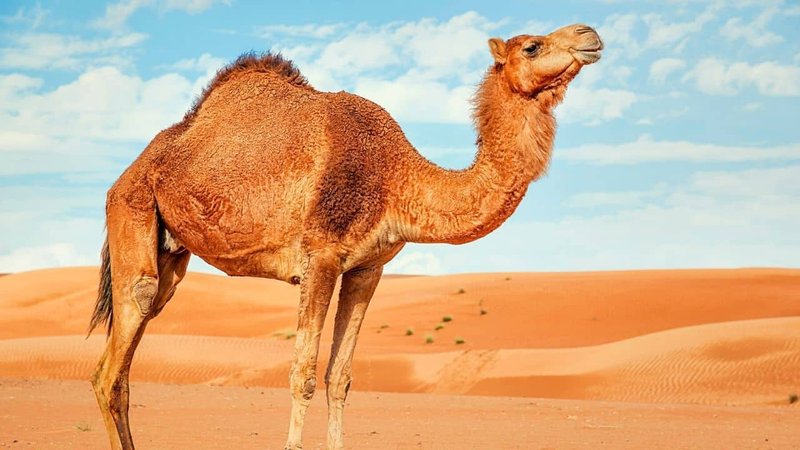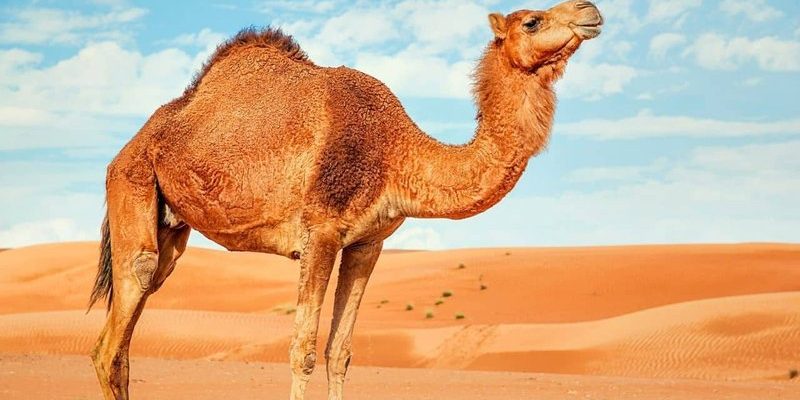
Let’s break it down over a cup of coffee. First, the regulations surrounding camel ownership often depend on where you live. Think of it like owning a pet dog; the rules can vary significantly from one place to another. In the U.S., some states might allow you to have a camel as a pet, while others might throw a bunch of legal hoops your way. Over in the UK, the situation is a bit different, with stricter regulations that can make it challenging to own this unique animal. So, let’s dive deeper into the laws, regulations, and considerations involved in camel ownership on both sides of the pond.
Legal Status of Owning Camels in the U.S.
In the United States, the legality of owning a camel can vary widely from state to state. So, what’s the deal? Some states have quite lenient regulations, while others treat camels as exotic animals that come with a whole set of requirements. Generally speaking, states like Texas and Oklahoma make it relatively easy to keep a camel, often categorizing them as livestock.
For example, if you’re living in Texas, you could potentially own a camel. However, it’s vital to check specific local ordinances and zoning laws. Even if the state allows it, your county or city may have additional rules. This could include needing permits or adhering to certain land size requirements. Here’s a quick summary of what to consider:
- Check your state’s livestock laws.
- Look into local zoning regulations.
- Consider the space you can provide for a camel.
- Factor in potential permits or licenses.
Not to mention, owning a camel isn’t just about legality; it’s also about responsibility. These animals need plenty of space, a special diet, and regular veterinary care. It’s not just a matter of legality; it’s about providing a suitable home for such unique pets.
Legal Status of Owning Camels in the UK
Switching gears to the UK, things get a bit more complicated. Here, camels are classified as exotic animals, and the regulations are more stringent. Under the Animal Welfare Act 2006, anyone looking to keep a camel (or any exotic animal) must obtain a license. Here’s what you’ll need to keep in mind:
- Obtain an Animal Activities License: This includes specific welfare requirements.
- Meet housing and space requirements outlined by the local council.
- Consider the safety and care for both the camel and the community.
In practice, this means that while you can technically own a camel, the level of commitment needed is quite high. You’ll need to prove that you can provide for the animal’s needs, which typically involves demonstrating proper housing that meets size and environmental needs.
Space and Environment Requirements
Whether you live in the U.S. or the UK, one common thread is the need for adequate space. Camels are large animals that require significant room to roam and graze. The general guideline suggests at least an acre of land per camel for proper well-being. Picture trying to keep a horse in a small backyard—it’s just not sufficient!
In addition to space, you’ll need to create a suitable environment. Unlike traditional pets, camels have unique needs. They thrive in environments that mimic their natural habitats, meaning:
- Access to shade and shelter from harsh weather.
- Room to roam and exercise.
- Access to clean water and appropriate feed.
It’s crucial to consider whether you can genuinely provide this kind of environment long-term. Camels can live for over 40 years, so it’s a long-term commitment.
Cost of Owning a Camel
So, you’ve checked the legality and space requirements. Now, let’s talk about money. Honestly, the cost of owning a camel can be quite surprising. Sure, they might be cute and exotic, but they’re also quite a financial commitment.
To get started, you’ll usually face initial costs, such as:
- Purchase price: This can range from $3,000 to $10,000, depending on the breed and age.
- Veterinary care: Regular health check-ups and vaccinations can add up.
- Feeding costs: Camels need a special diet that can be more expensive than typical livestock feed.
On top of these, you’ll also want to consider ongoing expenses, including housing, shelter, and maintenance of their living space. It’s key to weigh these costs against your budget—owning a camel isn’t just a whim; it’s a financial responsibility.
Ethical Considerations of Camel Ownership
You might be wondering if you should even own a camel in the first place. Beyond legality and costs, there are ethical considerations to keep in mind. Here’s the thing: keeping a camel is a big responsibility that requires a lot of knowledge about their care.
Camels are social animals, needing interaction and companionship. They don’t just exist in isolation; they thrive when they have plenty of space and stimulation. Before diving in, think about whether you can meet these needs. Here are some questions to ask yourself:
- Can I provide companionship? They do better with other camels or at least regular human interaction.
- Do I have the time and resources to ensure their well-being?
- Am I prepared for the long-term commitment of caring for a camel?
Taking the plunge into camel ownership shouldn’t just be about owning something exotic; it should be about providing a loving, caring home.
Alternatives to Camel Ownership
If owning a camel sounds like too much, don’t worry—there are alternatives! You may be interested in more common pets or even *experiences* involving camels. For instance, consider visiting a camel sanctuary or a farm that allows you to interact with these animals.
You could also think about a different kind of exotic pet that may be less demanding. Animals like llamas or goats can provide a fun, unique experience without the heavy demands of camel care. Plus, these animals can be easier to manage in terms of space and costs.
In summary, owning a camel in the U.S. or UK isn’t as simple as just saying you want one. The legality is heavily dependent on local laws, ethical considerations, and, most importantly, the ability to provide for their specific needs. It’s a beautiful dream, but one that requires serious thought and commitment.
So, if you’re still thinking about bringing a camel into your life, be sure to do your homework! As fascinating as these creatures are, they deserve a responsible owner who can meet their needs. Happy planning, and may your dreams of camel ownership bring you joy, whether they remain just dreams or become a reality!

